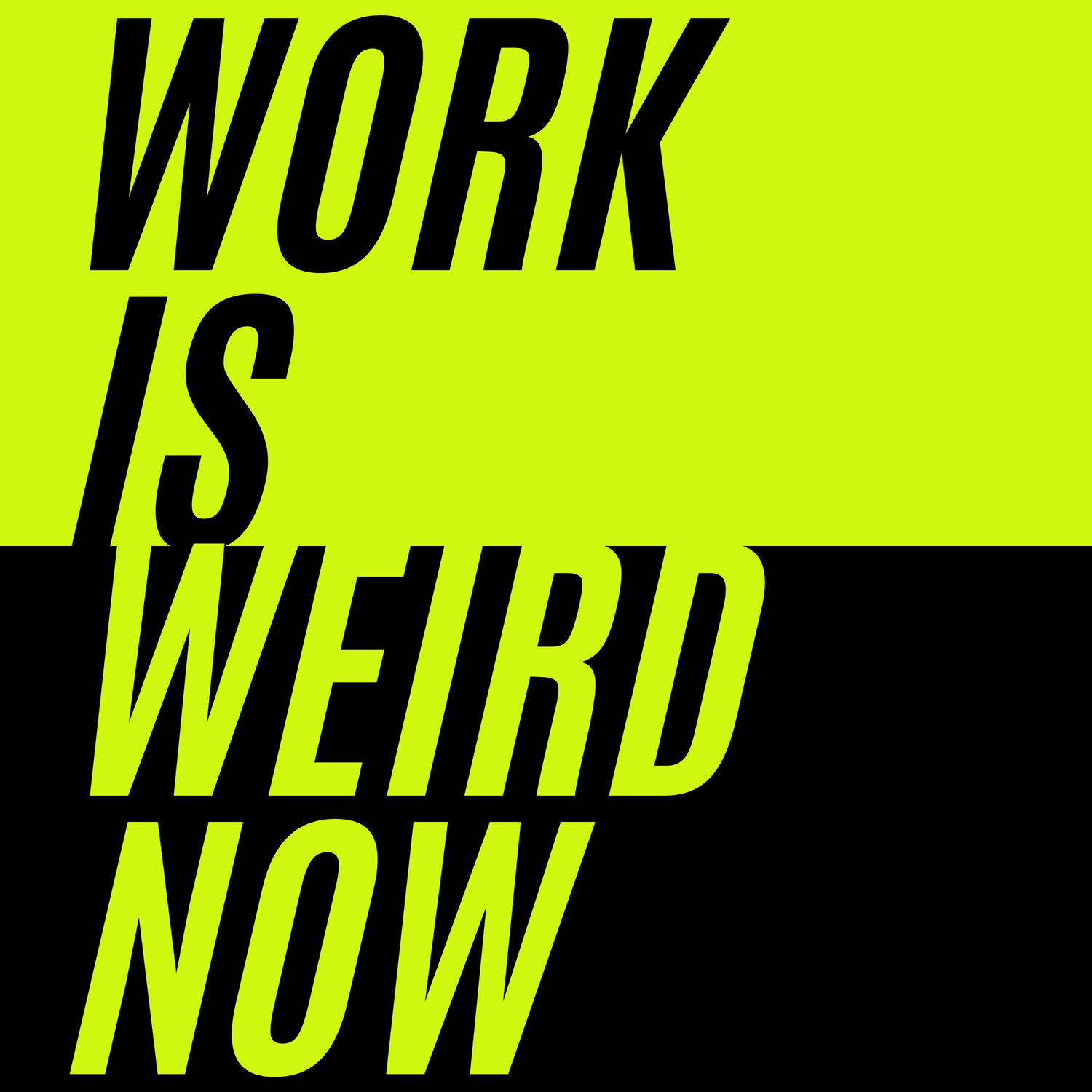Who cares for the caregivers at work?
We don’t often think of our colleagues as carers, but the truth is, many of them are.
Some are looking after children with disabilities. Others are supporting partners with long COVID. Some are sandwiched between aging parents and teenage kids, juggling care on both sides. Some are doing all of the above.
In this episode of Work Is Weird Now, we sat down with Charlie Beswick, carer, campaigner, and founder of Our Altered Life, to ask a big question:
Who’s looking after the people who show up at work every day (already emotionally and physically exhausted) because they’re caring for someone else?
The Numbers Are Bigger Than You Think
1 in 7 employees in the UK is now a carer.
That’s up from 1 in 9 not long ago — and likely still an undercount.
Many people don’t even realise they are carers. It can take 2 years or more to self-identify as one.
Charlie says that slight shift in language makes all the difference:
“Ask people if they’re carers and you’ll get one number. Ask if they have caring responsibilities and it doubles.”
The Reality for Carers at Work
Being a carer means you often show up to work already depleted: physically, mentally, emotionally. You may be on limited sleep, juggling appointments, medications, school systems, benefits forms, and relentless advocacy. And then you’re expected to focus.
Charlie puts it simply:
“You do a job for love before you do a job for pay.”
And many do it invisibly, either because they don’t identify as carers, or because they’re worried about stigma and being seen as unreliable or ‘less committed’.
Why Employers Should Care
If you’re an employer, here’s why this matters to you:
Retention: 600 carers leave the UK workforce every day because the system isn’t working for them.
Productivity: Carers are resilient, resourceful, emotionally intelligent, and fiercely organised — exactly the qualities many roles demand.
Risk: If you don’t support carers, you’re losing experienced, talented people at the peak of their careers, especially women.
“There’s a 50% chance a woman will become a carer by 46,” Charlie says. “And for men, it’s 57. Those are your most seasoned, committed staff.”
Support ≠ Pity
One of Charlie’s most powerful messages was this: carers don’t want pity.
“Yes, it’s hard. But it’s also beautiful. It’s meaningful. I don’t want you to feel sorry for me; I want you to understand me.”
That means:
Don’t tiptoe around the conversation.
Don’t assume what someone needs — ask.
Don’t automatically withhold promotions or flexibility.
Sometimes the best thing you can do is just acknowledge it with a simple:
“Thanks for sharing that. What do you need?”
What Good Looks Like
Charlie works with companies like Centrica, BT and Equinix — and says the basics of carer-friendly practice are not difficult:
Paid carers’ leave (Centrica offers 6 weeks — but employees only use an average of 3.4 days)
Flexible hours
Outcome-based management, not presenteeism
Training for line managers to handle conversations with compassion
A culture where disclosure doesn’t equal disadvantage
“If COVID taught us anything, it’s that people can get work done flexibly. We just have to trust them.”
Why People Don’t Speak Up
Many carers don’t say anything because:
They fear it’ll affect their role or progression.
They don’t want to be a burden.
They don’t realise their situation qualifies.
For managers, Charlie says it’s not about solving everything. It’s about building trust:
“You don’t have to fix it. But you can make life a little bit easier.”
If You Think You Might Be a Carer…
Ask yourself:
Has my personal freedom been affected by someone else’s needs?
Could that person function safely without me?
Am I making daily decisions around someone else’s health or safety?
If yes — you probably are a carer. You don’t need to wait for a crisis to ask for support.
Final Word: Carers Are an Asset
Workplaces aren’t just a break from caring. They’re also a lifeline.
“Work was therapy for me,” says Charlie. “It gave me space, identity, and a reason to talk to other adults.”
Carers bring:
Resilience
Empathy
Creativity
Negotiation and advocacy skills
Deep listening
Tenacity
Perspective
We don’t need sympathy. We need structures that see these qualities for what they are: the foundation of a great workplace.
🎧 Listen to the full episode wherever you get your podcasts
📫 Connect with Charlie on LinkedIn
📘 Download her ebook Do I Care? at ouralteredlife.com
